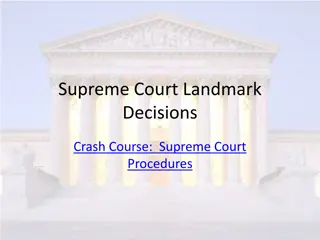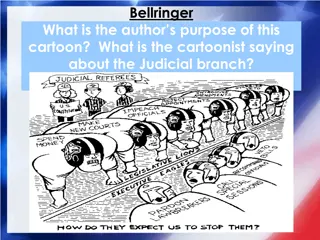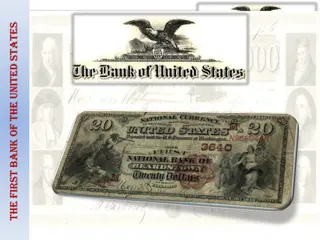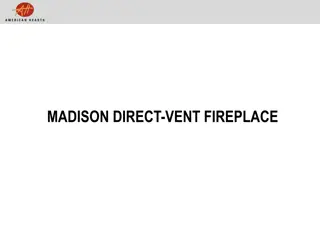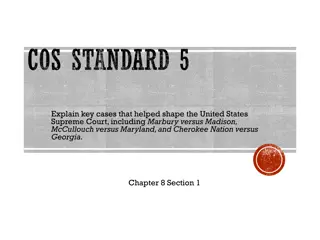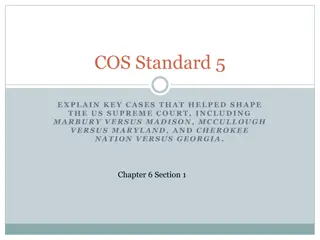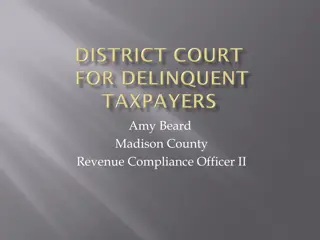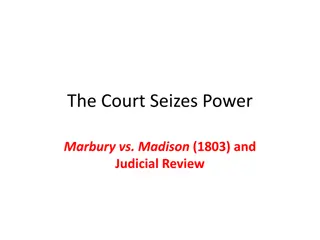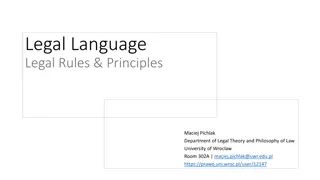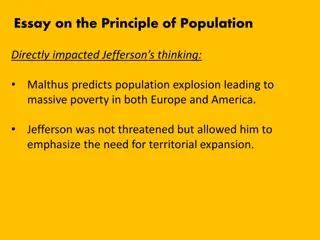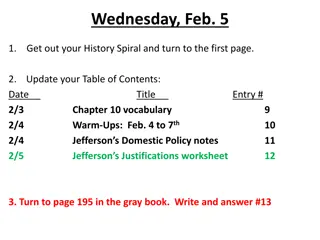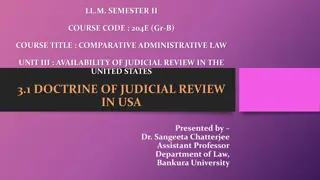Understanding Key Legal Terms in Marbury v. Madison Case
Explore essential vocabulary related to the landmark court case Marbury v. Madison, including terms like Judicial, Commission, Jurisdiction, Landmark Case, Precedent, and Writ of Mandamus. Test your knowledge with fill-in-the-blank exercises that relate to legal concepts and historical rulings by the Supreme Court.
Download Presentation

Please find below an Image/Link to download the presentation.
The content on the website is provided AS IS for your information and personal use only. It may not be sold, licensed, or shared on other websites without obtaining consent from the author. Download presentation by click this link. If you encounter any issues during the download, it is possible that the publisher has removed the file from their server.
E N D
Presentation Transcript
Marbury v. Madison VOCABULARY REVIEW
Terms to know Judicial Relating to courts of law, judges, or the administration of justice. Commission A document granting certain powers or the authority to carry out a particular task or duty. Jurisdiction The extent or range of authority or control. Landmark Case Court decisions that establish new precedents or change the interpretation of existing law. Precedent A judicial decision that may be used as a guide in future similar cases. Writ of Mandamus A legal document issued by a court commanding an official to perform a specific duty.
FILL IN THE BLANK The architecture firm received a government ________________ to complete a new building in Washington D.C.
FILL IN THE BLANK I was pulled over by a Dallas police officer on I-10 in Houston, but he couldn t give me a ticket because he did not have __________________.
FILL IN THE BLANK The court issued a _________________, commanding that the Secretary of State deliver a commission.
FILL IN THE BLANK The Supreme Court case Brown v. the Board of Education is considered a _______________ because it fundamentally changed the law regarding segregation in schools.
FILL IN THE BLANK The Supreme Court case, Tinker v. Des Moines, set the important __________ that students do have a right to freedom of speech in school, with certain limitations.
FILL IN THE BLANK The branch of government responsible for interpreting the law is the ________ branch.



